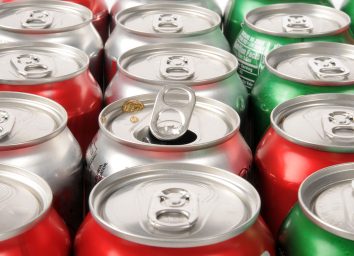Dangerous Side Effects of Drinking Coffee, According to Science
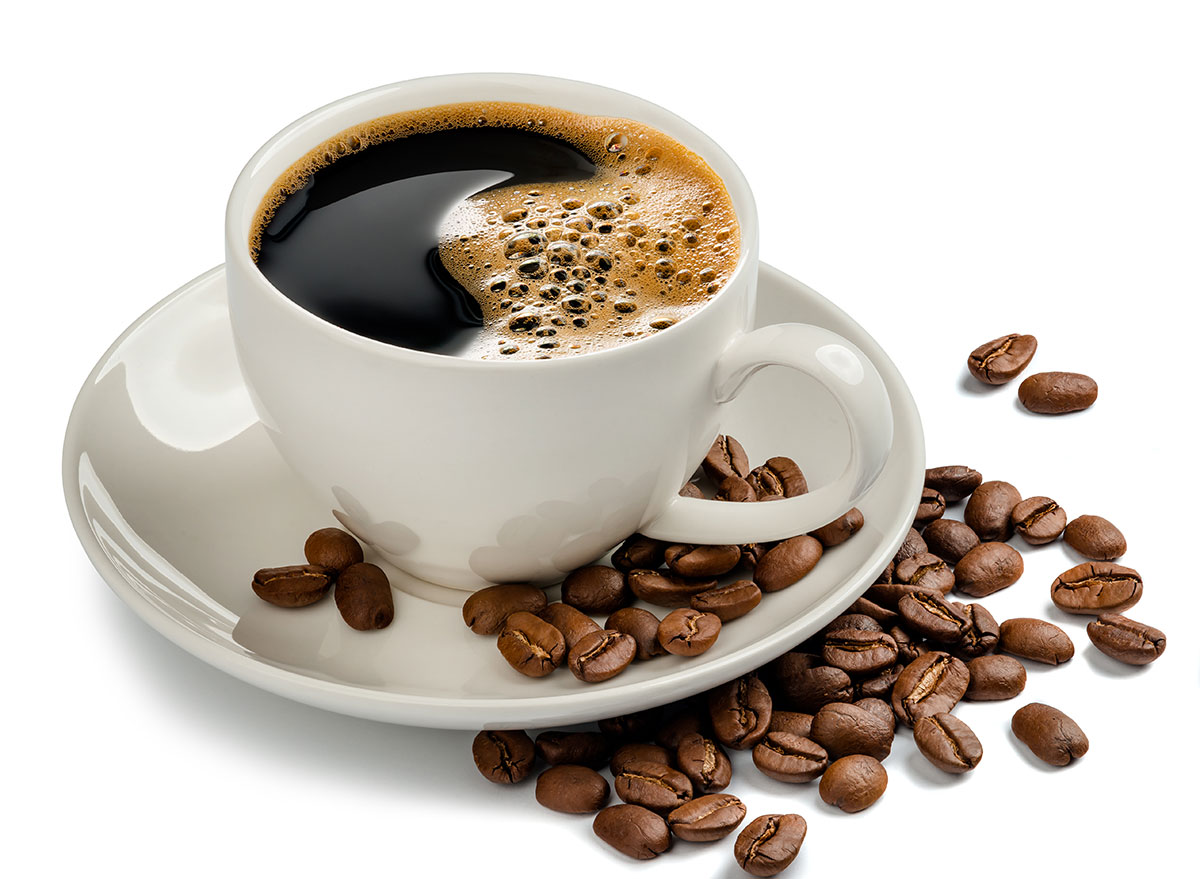
Many Americans claim they can’t function without their morning cup of coffee—and we get it, the caffeinated beverage gives us the get-up-and-go we all crave in the morning.
And while coffee provides a host of health benefits, such as reducing chronic inflammation in the body, there are a few potential side effects that you should be aware of. Below, you will see five such symptoms to be cognizant of after drinking a cup (or two… or three) of coffee, especially if you’re drinking the beverage for the first time. (And after, don’t miss The 7 Healthiest Foods to Eat Right Now!)
After drinking coffee, you may experience…
An increase in blood pressure
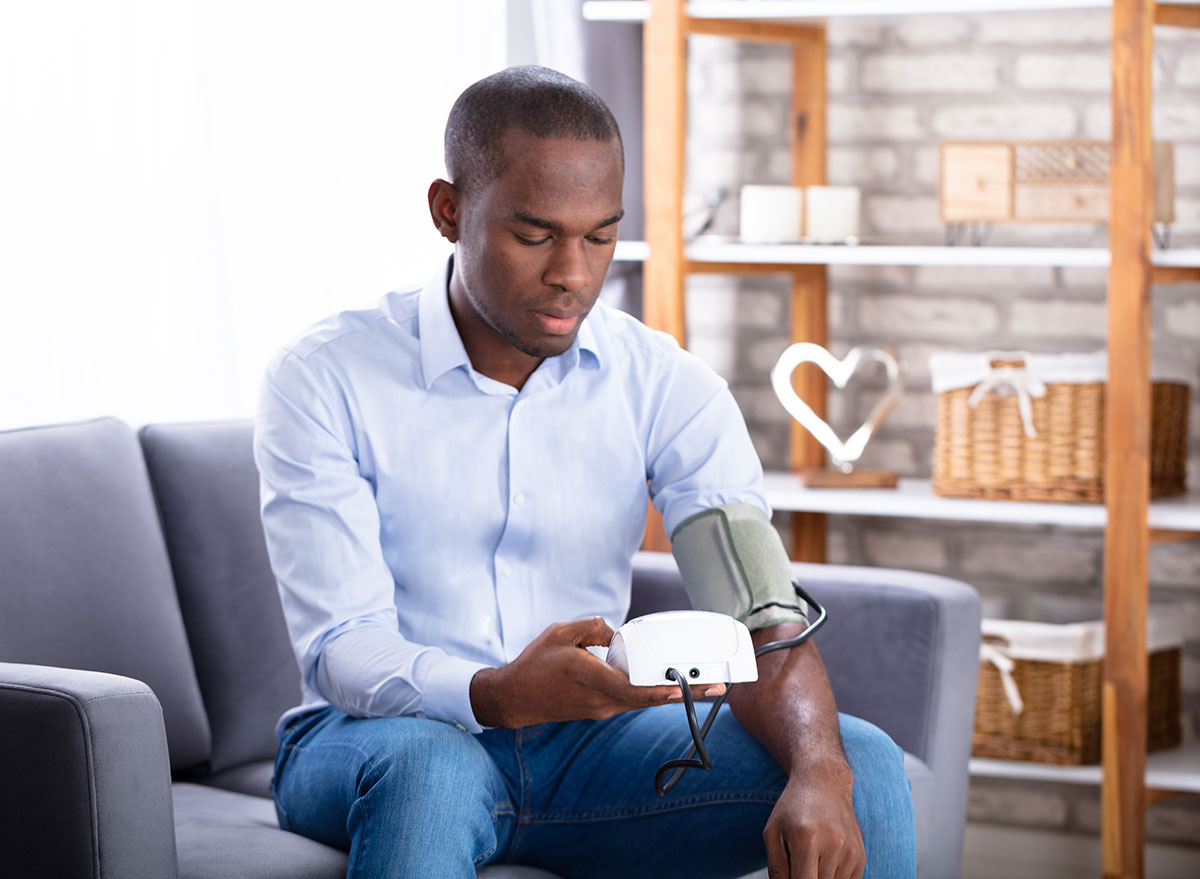
According to Harvard Medical School, caffeine doesn’t usually cause your blood pressure to elevate for prolonged periods of time. The medical research isn’t quite clear, as some studies do support a link between coffee and hypertension (high blood pressure), while others don’t.
For example, in a two-year study that included over 45,500 men between the ages of 40 and 75, Harvard scientists found no association between cardiovascular disease or stroke (of which high blood pressure is a predictor)—even in heavy coffee drinkers. However, a 2015 study indicates that those who don’t drink coffee regularly could experience a short-term increase in systolic blood pressure after drinking espresso.
Bottom line: The research is inconclusive and it largely depends on how often you drink coffee as well as what your blood pressure levels are before drinking it. That being said, before going to the doctor for a checkup, you may want to avoid drinking a Venti coffee from Starbucks or a cup of espresso as it could temporarily cause your blood pressure to spike.
Don’t miss These Are the Two Best Diets For Heart Health, According to Doctors.
Regular headaches
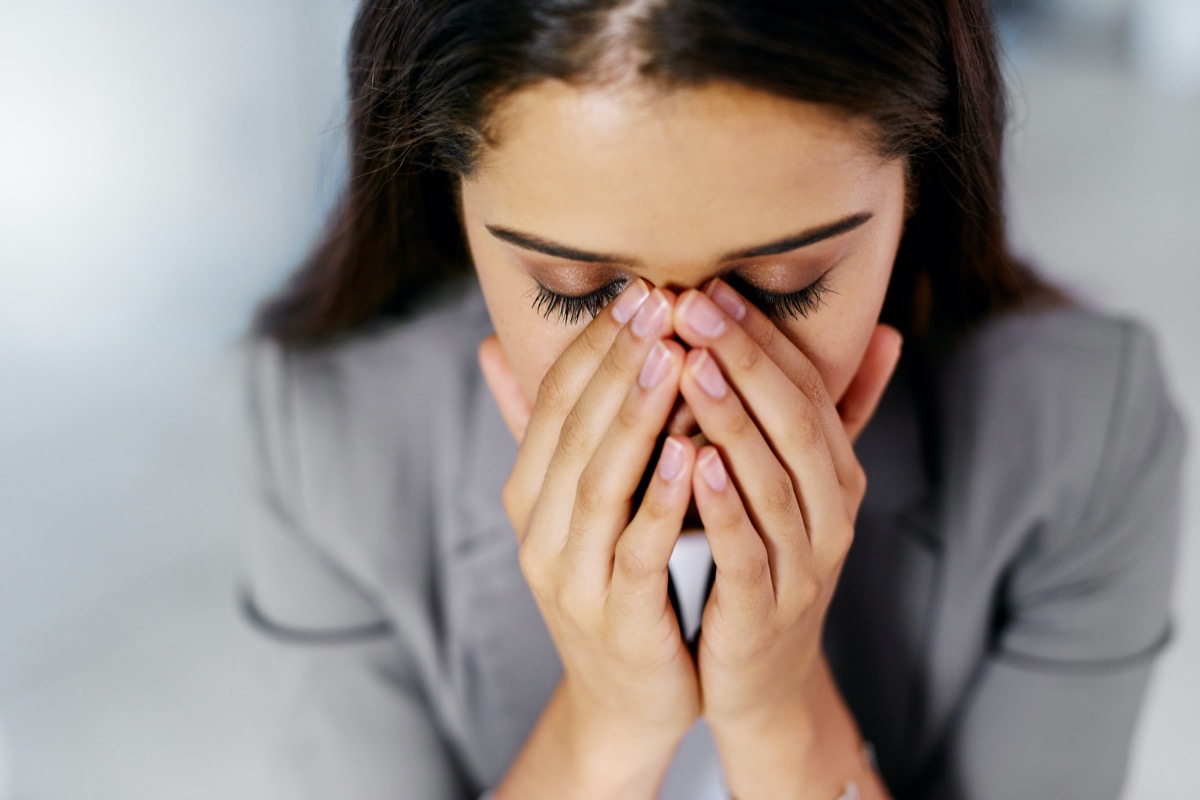
It’s possible that you’re drinking too much coffee and it could be the reason you’re getting headaches. A study published in the American Journal of Medicine asked nearly 100 people with migraines to record how often they consumed caffeinated beverages (this includes coffee, tea, carbonated beverages, and energy drinks).
The main takeaway? The odds of having a migraine increased for those who drank at least three caffeinated beverages each day, but not for those who sipped on one to two servings daily. Of course, a lot remains uncertain about caffeine consumption and migraine headaches, says Robert H. Shmerling, MD in an article for Harvard Medical School. (Related: What Happens To Your Body When You Drink Coffee.)
Elevated anxiety levels
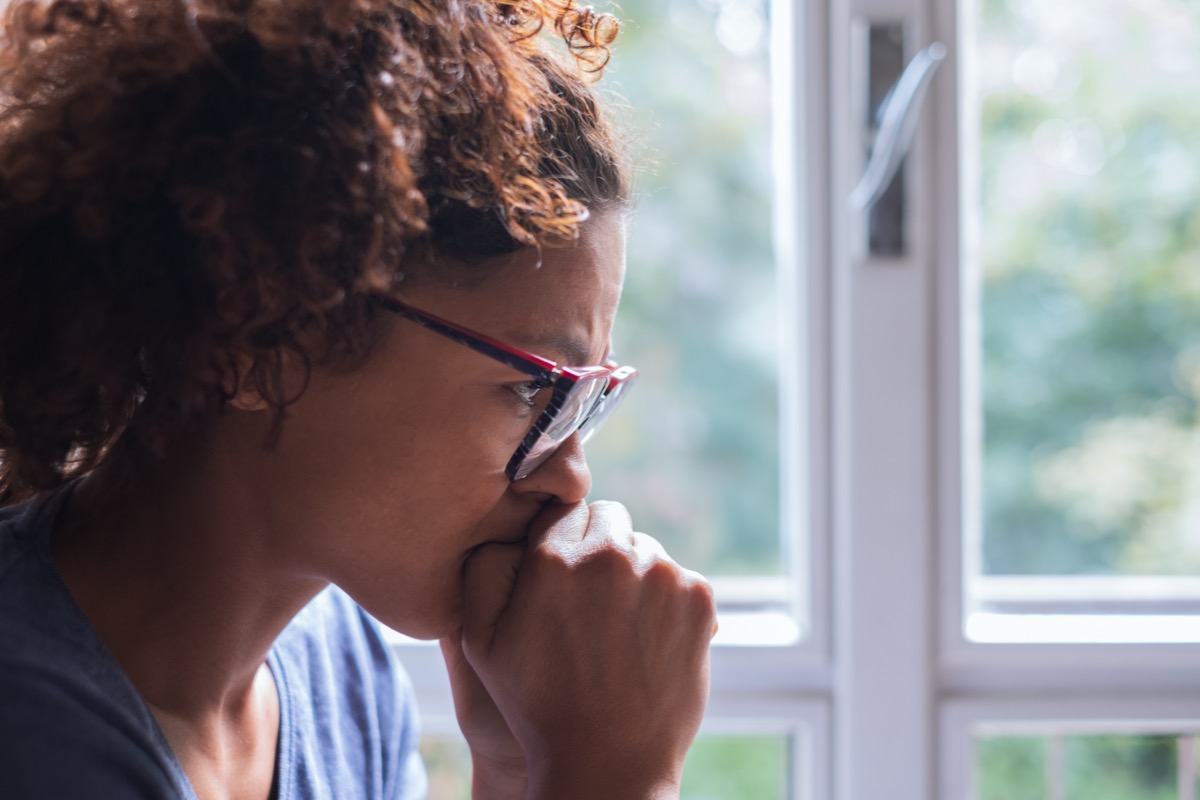
Kelli McGrane RD, for the calorie counting app Lose It! told ETNT in another article about side effects of drinking too much coffee that, “caffeine speeds up your central nervous system.”
“As a result, drinking more than moderate amounts of coffee—about three cups in individuals not sensitive to caffeine—can cause you to feel shaky. You may even notice nausea or feel like your heart is racing,” she added.
In an article with Health, Susan Bowling, PsyD, a psychologist at Women’s Health Center at the Wooster Branch of Cleveland Clinic said, “Overall, caffeine is often bad news for people with anxiety.
“The natural effects of caffeine stimulate a host of sensations, such as your heart beating faster, your body heating up, your breathing rate increasing—all things that mimic anxiety,” she said. Ultimately, it’s difficult for your mind to identify that what you’re feeling from the coffee isn’t actually anxiety.
If you already have anxiety, it may be best to avoid drinking the beverage in large quantities or perhaps even altogether.
Disrupted sleep quality
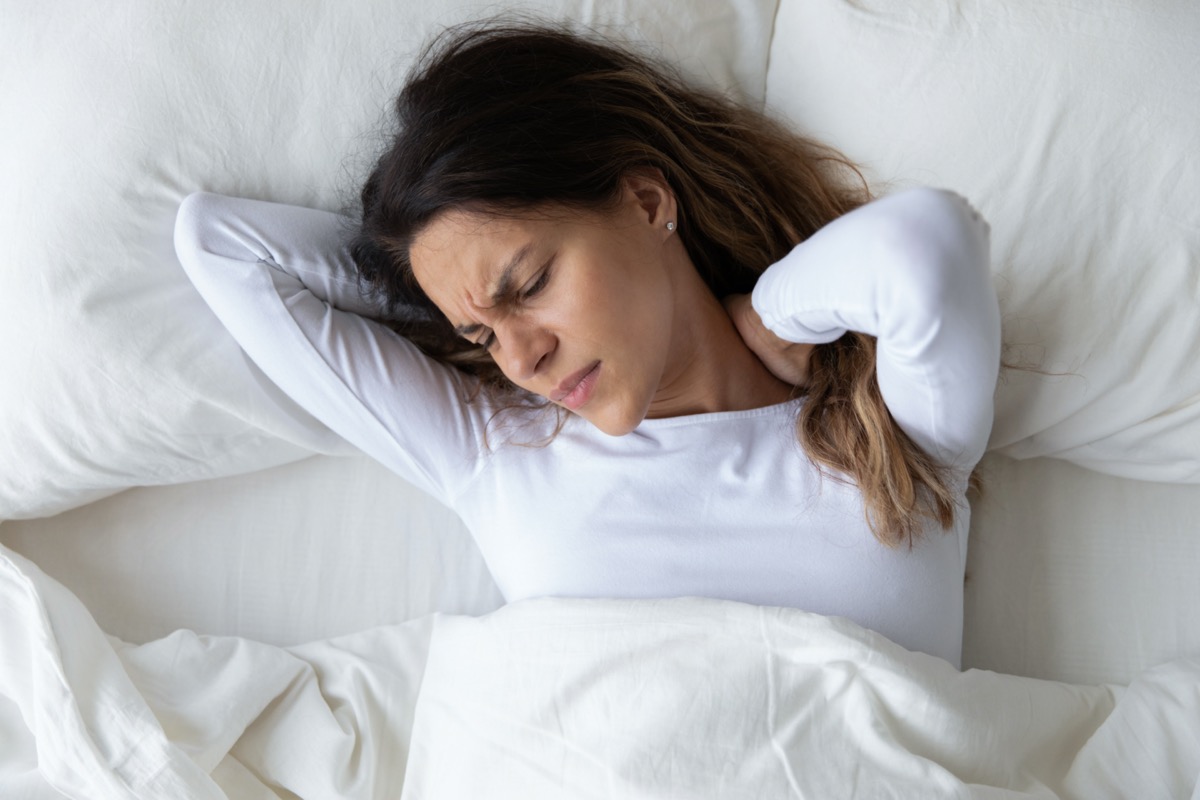
If you’re struggling to get a full night’s worth of quality shut-eye, the time at which you drink your coffee or latte could be to blame. A 2013 study published in the Journal of Clinical Sleep Medicine found that drinking caffeine up to six hours before bedtime can reduce the amount of time you spend sleeping that night by as much as one hour.
And for a surprising piece of information, be sure to read Why You Should Drink Coffee Before a Nap (Yes, Really).
Reduced fertility
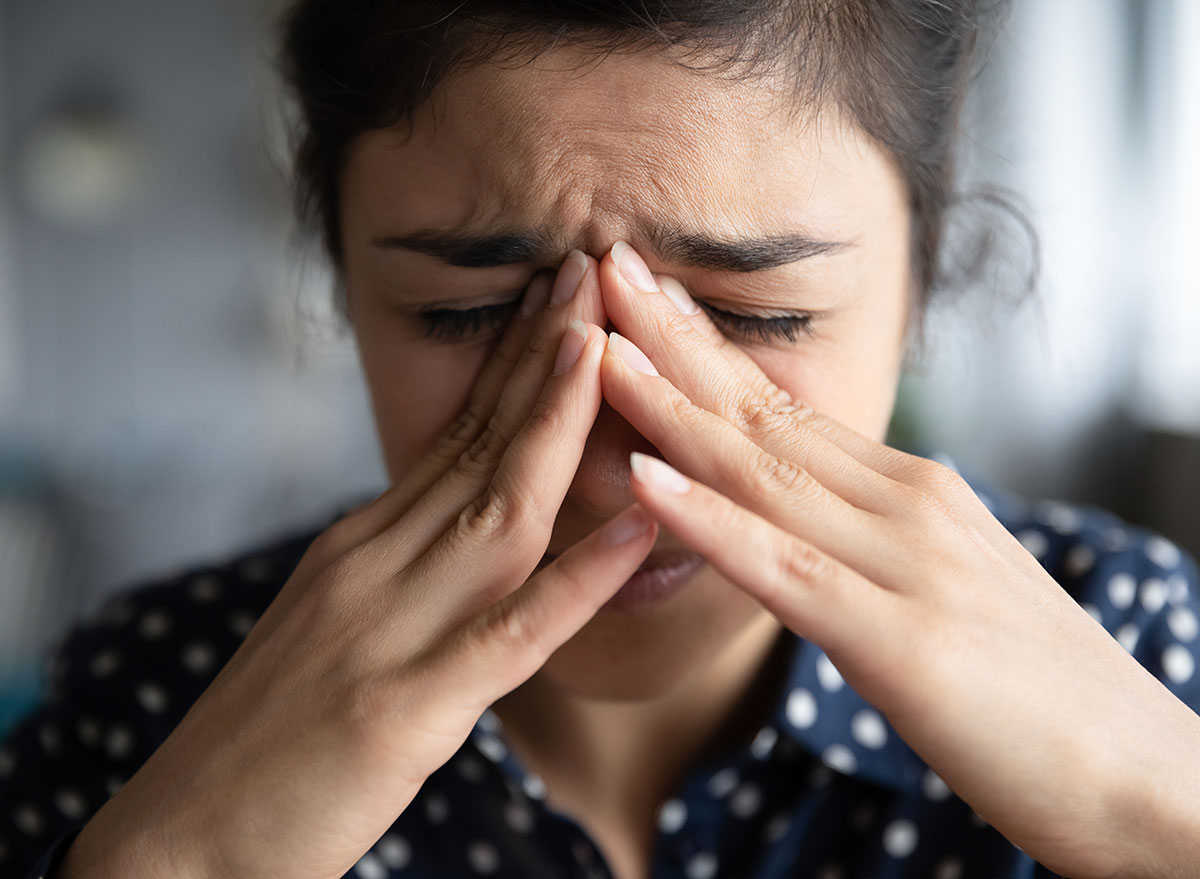
Studies have shown that drinking excessive amounts of coffee is believed to prevent conception and even worse, increase the likelihood of miscarriage.
Gil Weiss, MD, OB/GYN Partner at Association for Women’s Healthcare told ETNT in another article said, “No actual method has been elucidated as to why excessive caffeine consumption has been shown to reduce fertility.”
However, to play it safe, the doctor suggests capping your daily intake of the beverage if you’re trying to get pregnant.
“Most experts agree that consuming less than 200 milligrams of caffeine should not have any impact on fertility,” says Weiss. This equates to about two, 8-ounce cups of coffee.
Now, for more positive coverage on the morning beverage, be sure to read 10 Coffee Hacks for Weight Loss, According to Registered Dietitians.
